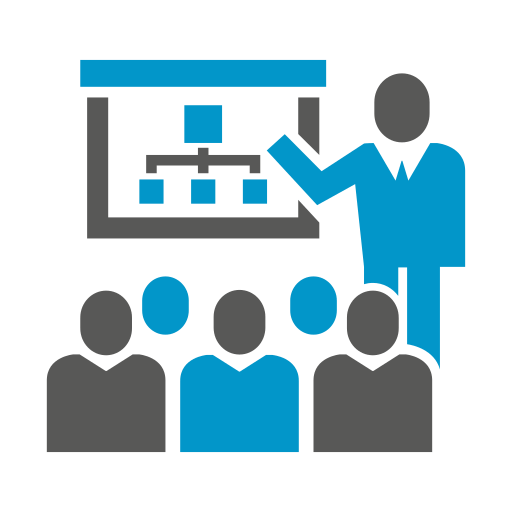Description
WHAT YOU WILL LEARN
A Certified SOA Professional has a proven understanding of the fundamentals of services, microservices, APIs and service-oriented architecture, as well as common technologies and business considerations. Depending on the exam format chosen, attaining the SOA Professional Certification can require passing a single exam or multiple exams. Those who achieve this certification receive an official digital Certificate of Excellence, as well as a digital Certification Badge from Acclaim/Credly with an account that supports the online verification of certification status.
MODULE OVERVIEW
The SOA Professional certification track is associated with the following courses and the courses can be delivered via instructor-led training.
SOACP Module 1: Fundamental SOA, Services & Microservices
This course provides an easy to understand, end-to-end overview of contemporary service concepts and technologies pertaining to modern-day microservices and service-oriented computing, as well as business and technology-related topics pertaining to service-oriented architecture (SOA).
The following primary topics are covered:
– Business and Technology Drivers for SOA, Services and Microservices
– Strategic Goals and Benefits of Service-Oriented Computing
– Plain English Introduction to Services and Microservices
– Fundamental Characteristics of a Service-Oriented Architecture
– Understanding Service-Orientation as a Design Paradigm, including the Four Pillars of Service-Orientation
– Introduction to Service Layers, Service Models and Service Compositions
– Service Inventories, Service Layers and Service API Governance and Management
– Introduction to Common Service Technologies, including API Gateways, Virtualization, Containerization
– Introduction to Cloud Computing and Cloud Services
– Adoption Impacts, including considerations for Governance, Infrastructure, Performance and Standardization
Duration: 1 Day
SOACP Module 2: Service Technology Concepts
This course focuses on modern service technologies, models and concepts that have established de facto implementation mediums for building contemporary services-based solutions. Also covered are fundamental terms, concepts and models pertaining to cloud computing and cloud-based services.
The following primary topics are covered:
– Comparing Service Implementation Mediums
– Service Roles and Service Agents
– Message Exchange Patterns and Service Activities
– Basic XML, XML Schema, JSON and JSON Schema Concepts
– HTTP Methods, Response Codes and Headers
– Basic REST Service Concepts, including Properties and Constraints
– REST Services, Contracts, Resources and Messaging
– Hypermedia and Late Binding
– Basic WSDL and SOAP Concepts
– WS-* Technologies
– Web Service Contracts, Messaging and Registries
– Cloud Computing Concepts
– Vertical and Horizontal Scaling
– Multitenancy, Elasticity and Resiliency
– On-Demand Usage, Ubiquitous Access and Measured Usage
– Public, Private and Hybrid Clouds
– IaaS, PaaS and SaaS
Duration: 1 Day
SOACP Module 3: Design & Architecture with SOA, Services & Microservices
This course delves into the service-oriented architectural model and the service-orientation design paradigm and establishes the unique characteristics and dynamics that constitute service-oriented solution logic. The course raises a series of distinct considerations for designing service-oriented solutions with microservices, as well as REST services and Web services.
The following primary topics are covered:
– Fundamental Application Design with SOA
– Service-Orientation vs. “Silo”-Based Design
– Service-Oriented Application Design with Microservices
– Understanding Services and Service Capabilities
– Understanding the Functional Context of Microservices
– Complex Service Composition Design, Composition Runtime Roles and Responsibilities
– Composition with Microservices
– Distinguishing Characteristics of the SOA Model
– The Eight Design Principles of Service-Orientation
– Contract-First Design, Standardized Service Contracts and Uniform Contracts
– Service Loose Coupling and Coupling Types, Service Abstraction and Information Hiding
– Service Reusability and Agnostic Design, Service Autonomy and Runtime Control
– Service Statelessness and State Deferral, Service Discoverability and Interpretability
– Design Guidelines for REST Services
– Design Guidelines for Web Services
– Design Guidelines for Microservices
Duration: 1 Day
PREREQUISITES
- There are no formal prerequisites for the certification exam
EXAM & CERTIFICATION
You can take exams anywhere in the world via Pearson VUE testing centers, Pearson VUE online proctoring and Arcitura on-site exam proctoring at your location.
You are provided with three flexible exam format options:
- Complete the exams for SOACP Modules 1 and 2 or SOACP Modules 1 and 3.
- Complete the combined Exam S90.STP.
- Achieve any other SOACP certification. (The SOA Professional accreditation is automatically issued upon obtaining any one of the other SOACP certifications because they all encompass Modules 1 and 2 or Modules 1 and 3.)








